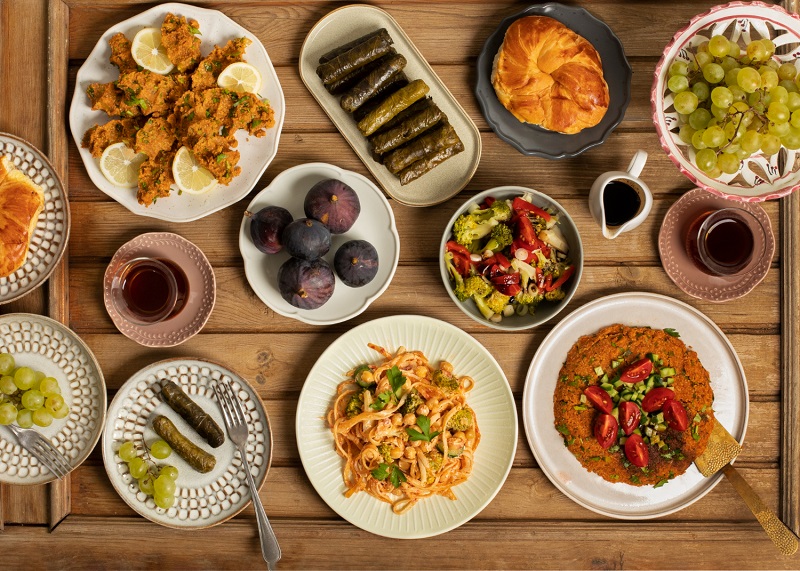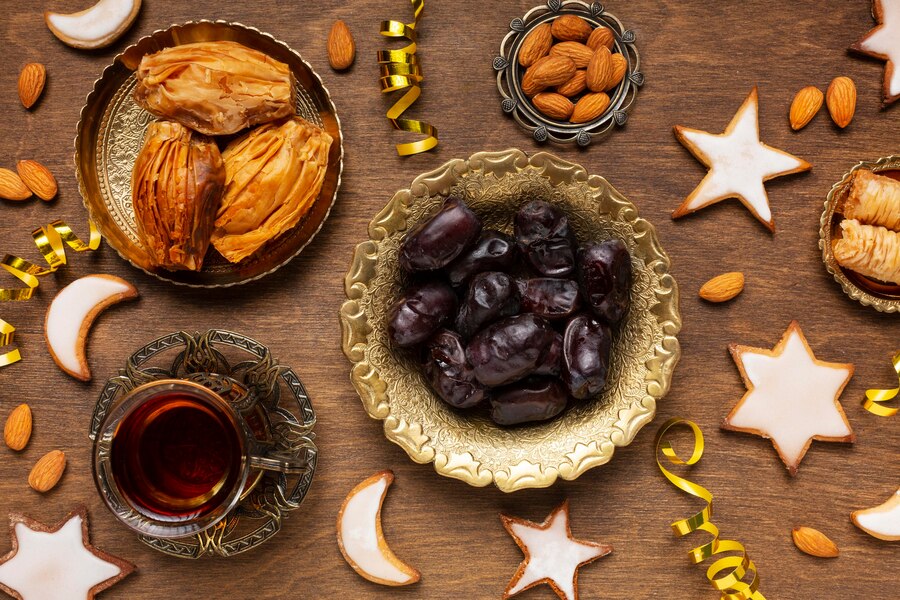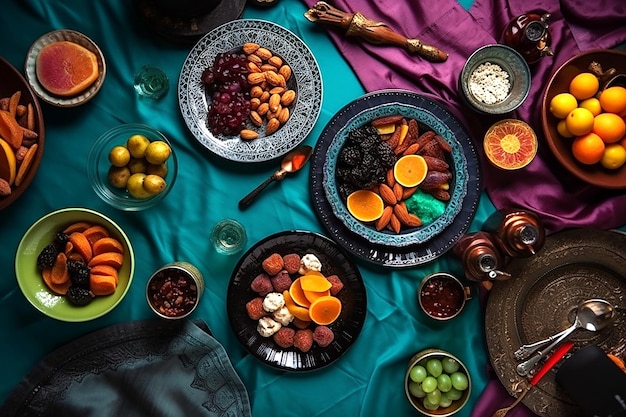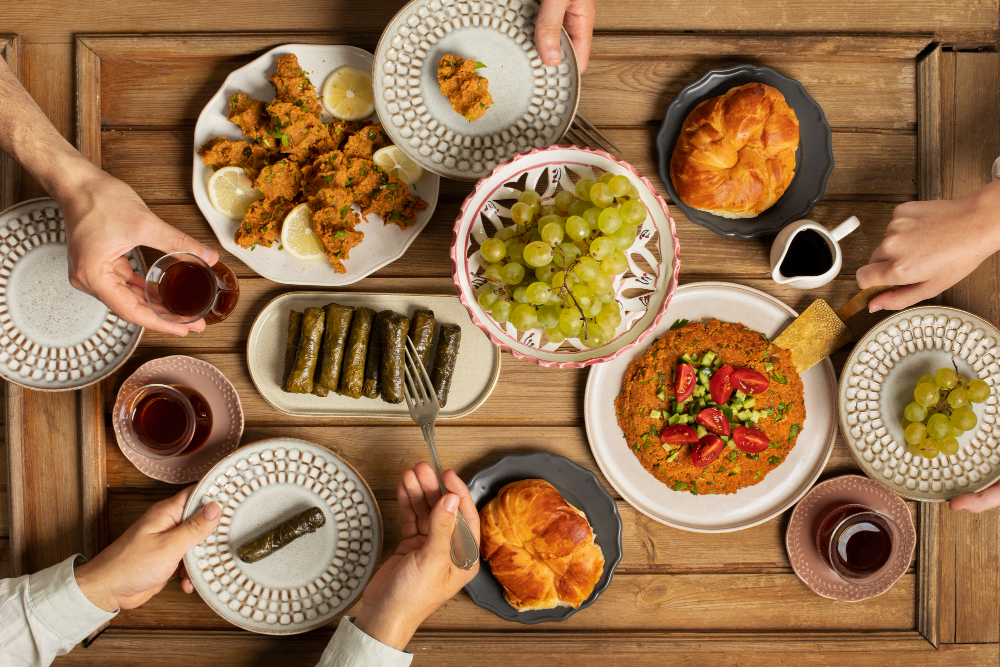Ramadan is a significant month for the Muslim community worldwide. It is a sacred month where Muslims fast from dawn to sunset. During this time, Muslims reflect on their spirituality, increase their devotion to Allah and practice self-discipline. To observe this holy month, families and communities come together, and one of the essential aspects of Ramadan is meal planning and preparation.

Therefore, it is crucial to have a well-thought-out grocery list that can help streamline your shopping experience and ensure you have all the necessary items on hand. Here are some tips and suggestions for creating an efficient Ramadan shopping list in 2024:
What is the significance of the month of Ramadan in Islam?
Ramadan is the ninth month of the Islamic lunar calendar and is considered highly significant for Muslims worldwide. It is the month in which the Quran, the holy book of Islam, was first revealed to the Prophet Muhammad. Ramadan is a time of spiritual reflection, self-improvement, and heightened devotion and worship. It is also a time for Muslims to practice self-discipline, restraint, and empathy for those less fortunate.
What do Muslims do in Ramzan?
During Ramadan, Muslims fast from dawn until sunset, abstaining from food, drink, smoking, and marital relations. Fasting is obligatory for all adult Muslims, with exceptions for those who are ill, elderly, pregnant, breastfeeding, menstruating, or traveling. Muslims also engage in increased prayer, reading of the Quran, and acts of charity and generosity during Ramadan.
What month do Muslims fast?
Muslims fast during the month of Ramadan, which is the ninth month of the Islamic lunar calendar. The exact dates of Ramadan vary each year as the Islamic calendar is based on the lunar cycle, making Ramadan shift approximately 10-12 days earlier each year in the Gregorian calendar.
What is Ramadan simple?
Ramadan is the ninth month of the Islamic lunar calendar and is observed by Muslims worldwide as a month of fasting, prayer, reflection, and community. During Ramadan, Muslims fast from dawn until sunset, abstaining from food, drink, smoking, and marital relations. It is a time for spiritual growth, self-discipline, and empathy for those less fortunate.
Ramadan Shopping List 2024: Things to Buy
1. Dates
Dates are traditionally the first food to break the fast during Ramadan, following the example of the Prophet Muhammad. They are rich in natural sugars, fiber, and various vitamins and minerals, making them an excellent source of energy after a day of fasting. When selecting dates, look for plump, moist fruits with a glossy appearance.
2. Cooking Oil/Ghee
Cooking oil or ghee is an essential ingredient in preparing various dishes for Iftar (the meal to break the fast) and Suhoor (the pre-dawn meal). Opt for healthier options such as olive oil or sunflower oil, and consider keeping a small quantity of ghee for traditional recipes that require its distinct flavor.
3. Fruits And Vegetables
Fruits and vegetables are vital for maintaining good health during Ramadan. They provide essential vitamins, minerals, and fiber. Include a variety of colorful fruits and vegetables in your shopping list to ensure a balanced diet throughout the month.
4. Dairy
Dairy products such as milk, yogurt, and cheese are excellent sources of protein and calcium. They can be consumed at Suhoor to help keep you feeling full and hydrated throughout the day.
5. Himalayan/Sea Salt
Salt is crucial for maintaining electrolyte balance, especially during long hours of fasting. Consider using Himalayan or sea salt, which are less processed and contain more minerals than table salt.
6. Berries and Nuts
Berries and nuts are nutritious snacks that can help keep hunger at bay during fasting hours. They are rich in antioxidants, fiber, and healthy fats. Include a variety of berries and nuts in your shopping list for a healthy Ramadan diet.
7. Meat
Meat is a good source of protein and essential nutrients. Include a variety of meats such as chicken, beef, and lamb in your shopping list to add variety to your meals during Ramadan.
8. Flour
Flour is a staple ingredient in many traditional Ramadan dishes, such as bread, pancakes, and pastries. Stock up on flour to ensure you have enough for all your cooking needs throughout the month.
9. Juices
Juices are a refreshing way to hydrate after a day of fasting. Opt for natural juices without added sugars to reap the full nutritional benefits. Consider making your own juices at home for a healthier alternative.
In conclusion, planning your Ramadan shopping list carefully can help you make the most of this sacred month. By including a variety of nutritious foods and essential ingredients, you can ensure that you have everything you need to maintain a healthy and balanced diet throughout Ramadan.







Your article helped me a lot, is there any more related content? Thanks!